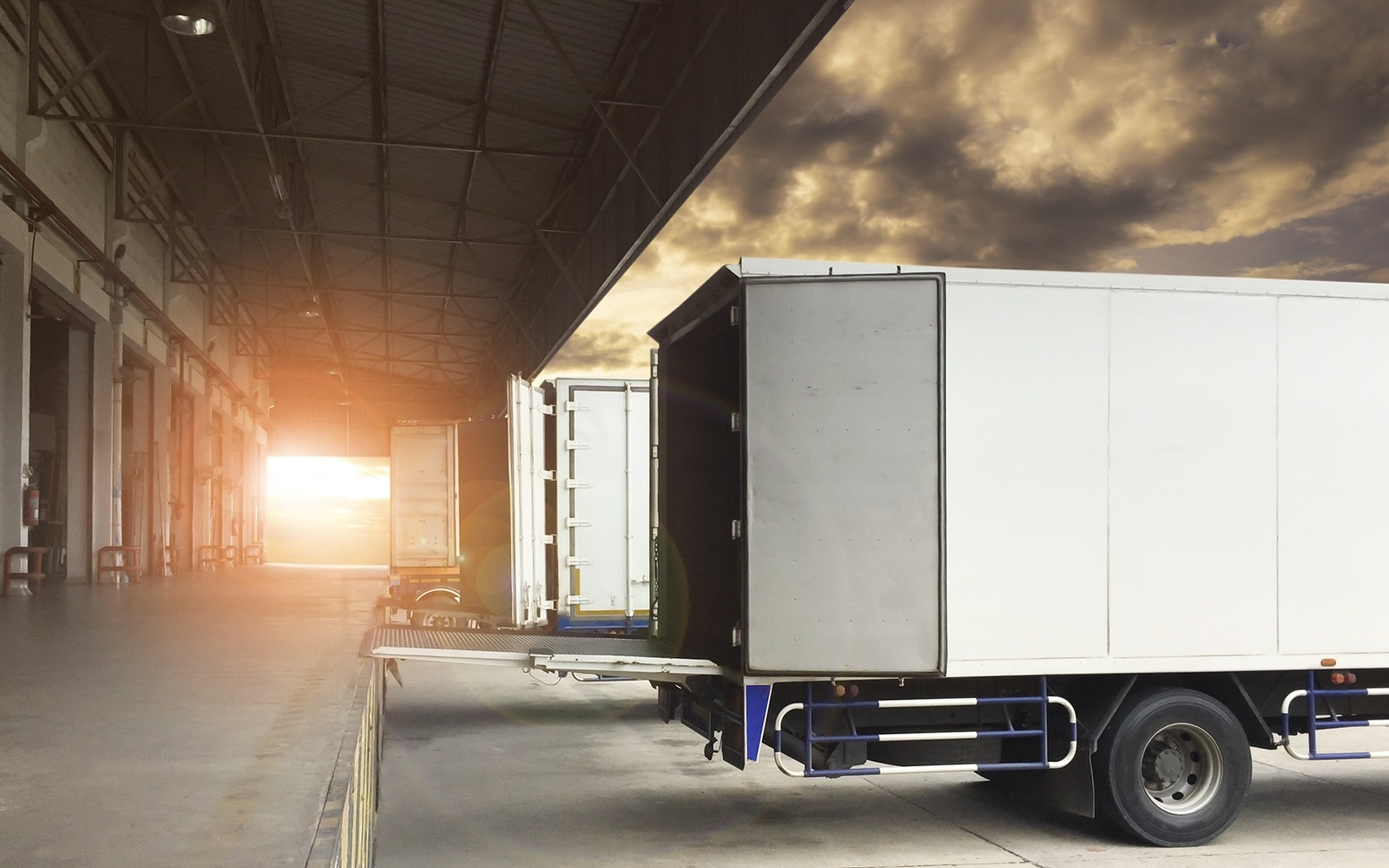In 2021, trucks transported 10.93 billion tons of freight. However, although freight can be a great shipment option, it’s important to choose the right type for your needs.
When it comes to choosing the right shipping method, there are several variables you should consider to choose the most efficient mode. Learning about the LTL meaning and FTL meaning will help you choose the most cost-effective and efficient option.
But since shipping freight may be a complex process, you might wonder which shipping mode to choose – FTL or LTL.
In this article, you’ll learn everything you need to know about FTL and LTL. Let’s dive right into it to find out which is the right mode for you.
What is FTL Shipping?
FTL stands for “full truckload” freight. FTL freight shipping is typically used for massive shipments that take up the full truck or almost fill it.
This type of shipping can be a great choice when a business needs a lot of space and the goods will add up to be a full truckload. This type of shipping also offers more control and efficiency. With FTL, your freight is the only freight going on an individual truck, meaning you get exclusive use of the entire vehicle and are potentially filling the truckload.
You can book the truck at its full capacity even if you don’t need to fill up the entire space. This way, you won’t have to worry about your items changing hands or getting locked with other things.
Advantages of FTL Shipping
The biggest advantage of full truckload shipping is that it’s the quickest way to transport your goods. Because the truck is dedicated to your cargo, there will be no detours or stops along the journey to its destination.
What is LTL Shipping?
LTL stands for “less-than-truckload”. You can use LTL when you have only a small amount of freight to ship that won’t fill up the whole truck.
In order to fill the truck as nearly as possible with LTL shipments, several shipments are combined into one truck. It means that the trailer carries multiple shipper’s freight on the same truck rather than transporting a single company’s freight exclusively.
LTL freight shipping is the most efficient solution for small businesses that don’t have large loads to transport.
Advantages of LTL Shipping
LTL logistics enables you to ship your load at a fraction of the cost of employing the whole truck for exclusive transportation. Since you’re sharing the truck with other shippers, you won’t need to pay the full price.
Weight Specifications
Keep in mind that the shipment weights of these freighting methods tend to vary.
FTL is a good choice for large shipments that weigh more than 10,000 pounds while LTL is better for shipments that are less than 10,000 pounds. However, this is a general guideline and these numbers may vary based on your needs.
It’s also important to realize that weight specifications will be more strictly followed and checked with LTL shipping. Shipments will typically be scanned to check the weight and dimensions. If the bill of lading specifications are incorrect, then the freight shipment will be reclassified.
Difference Between FTL and LTL
There are four main differences between FTL shipments and LTL shipments:
- Size
- Price
- Accessorial Charges
- Freight Class
- Time
- Handling
Size
When transporting freight, the first thing you must consider is the size. Full Truckload and Less Than Truckload are self-explanatory terms that mean just what they say.
LTL shipments are smaller packages that generally weigh between 100 and 5,000 pounds. These tiny shipments will only occupy the truck, making room for further minor shipments.
FTL shipments, on the other hand, typically fill the majority to all of a truck and are substantially bigger, weighing 20,000 pounds or more.
Shipments weighing between 5,000 and 10,000 pounds can occasionally be moved either LTL or FTL.
Price
Another thing to realize about these two types of freight shipments is that the cost is different as well.
You’ll be paying for an entire truck when you get FTL shipping, although you’ll also have more control over the shipment. With LTL shipping, you’ll be sharing the truck with others, so the costs will be lower.
Although there are some disadvantages to LTL shipping, such as slower delivery and increased handling, it can be worth it if cost is the most important factor.
While LTL shipments are smaller and provide more capacity for additional shipments, they are less expensive because you only pay for the space you need. On the other hand, FTL shipments take up the majority of the vehicle and are more expensive since you are paying for more room in the truck.
The selection between FTL and LTL is critical because if you choose incorrectly, you may wind up paying for space that you aren’t even using.
More Accessorials With LTL Shipping
While costs will be lower with LTL shipping, there will generally be a higher number of accessorial charges. Because you’ll be sharing the truck with other shippers, any unexpected delays and disruptions are more likely to get charged.
LTL freight will be a bit stricter than FTL shipping. With FTL freight, it won’t be as necessary to maintain a strict level of efficiency since there will only be one shipment on the truck.
LTL Freight Class Affects Price
Another thing to realize about LTL shipping is that the price will be based on the freight class that your items are in.
Your load’s freight class will be based on the classifications set by the National Motor Freight Traffic Association (NMFTA). This includes 18 classes that outline how easy the freight will be to carry and handle.
The lower freight classes will typically have the lowest costs while higher classes will be more expensive.
Time
Since LTL shipments contain many shipper’s loads, they frequently stop on the way to drop packages. Meanwhile, an FTL load is typically picked up and delivered on the same vehicle, resulting in a faster delivery time.
While LTL shipping is cheaper, delivery times are usually slower. It’s important to keep this in mind when making shipments.
Because there will be multiple pickups and deliveries, it will be necessary for a driver to have more flexibility. For LTL shipments, it’s standard for there to be first-come-first-serve windows (FCFS) of two hours or longer.
Pickups aren’t guaranteed either. This means that there won’t be firm pickup and delivery appointments and the timing of deliveries isn’t guaranteed.
So if you’re short on time and need to deliver your freight as soon as possible, FTL may be the way to go.
Handling
Another thing you should consider when choosing the shipment mode is how delicate or high-risk it is. In addition to slower shipping times, LTL shipments will require more handling. A shipment will be transferred and will be loaded and unloaded several times on its journey.
With an FTL shipment, on the other hand, a shipment will be loaded at the origin and will go straight to its destination. Shipping will be fast and efficient and there will be little handling required.
Since there will be more handling in LTL shipping, it’s not the best choice for items that are on the fragile side. If you want to reduce the risk to your goods when shipping, then a full truckload is probably the better way to go.
During FTL shipment, your package will remain on the same truck and won’t be moved to another. This reduces the danger of damaged or lost items.
LTL shipments, on the other hand, may move trucks or be transferred several times before delivery, raising the chance of damaged or missing things.
How Can a Freight Broker Help You Choose the Right Shipping Mode?
Despite the fact that FTL and LTL serve the same goal, selecting between these freight options might be tricky.
You might make this option independently during a less volatile season when you may not have as much on your plate. Yet, in today’s fast-paced and capacity-crunched industry, a logistics freight broker is the appropriate complement to the team to handle transportation-related matters.
Freight brokers assist shippers in determining whether to employ FT or LTL services. Some may think that employing freight brokerage services is “too much”. Meanwhile, many who are intimidated by handling numerous runs at once, tracking shipments, filing paperwork, and much more in today’s flawed system benefit from working with an experienced freight brokerage.
Freight broker company can help you assess your shipment mode needs in two main ways:
- A freight broker would provide you with National Carrier Network information. It’s a website filled with reliable carriers and various services.
- A freight broker would guide you on how to navigate the National Carrier Network site for efficient capacity purchasing selection.
Benefits of Working with a Freight Broker for FTL and LTL
Working with Freight Logix means you’ll get the most out of your shipments. We ensure that you make the most efficient decisions and that your freight moves smoothly from the start to the final destination.
Freight Logix can assist you in multiple ways during FTL and LTL shipments:
- Getting insight into actual market rates: Because we can branch out to other markets, you’ll receive more accurate details than you would have on your own.
- Getting access to more capacity: Since we leverage carrier networks and relationships, we can provide you with access to more capacity.
- Reducing overhead and stress: Despite experience, not every supply chain specialist has worked in every industry. By working with us, you may select how active you want to be in moving your freight.
- Enhanced controls and exception management: By working with Freight Logix, you may focus fully on business-building strategies and only be informed of important irregularities.
No matter how large your operation is or how much freight you need to be shipped, we have a solution for you. Call 949.444.4487 or email Freight Logix today to get the best prices with the most reliable carriers.
FTL and LTL FAQs
What are LTL and FTL in Logistics?
FTL stands for “full truckload”, while LTL refers to “less than truckload”.
What is Cheaper, LTL or FTL?
LTL shipment is cheaper than FTL because it allows you to share the truck with other shippers and transport smaller loads.
Is FTL Better Than LTL?
Which shipping mode is better between FTL and LTL depends on your needs. Generally, an FTL shipment is faster because the same container is carried from start to destination. On the other hand, LTL is better if you have a small business and need to move a smaller load.
Is FedEx Freight LTL or FTL?
FedEx Freight is a nationwide LTL carrier offering domestic shipping.
What is the Maximum Weight For an FTL?
Shippers usually use FTL to move freight weighing more than 12 pallets weighing up to 45,000 pounds.

Building relationships one client at a time. Put our 65 years of combined industry experience to work for you!
In today's fast-paced business environment, partnering with a trusted logistics provider like Freight Logix can make all the difference in achieving your goals and staying ahead of the competition. Our expertise in handling complex supply chain operations, coupled with our commitment to delivering exceptional customer service, makes us the ideal partner for businesses of all sizes and industries. By choosing Freight Logix for your logistics needs, you gain access to our experienced team, state-of-the-art technology, and extensive network of resources, ensuring that your products are delivered to their destinations on time and in perfect condition.
At Freight Logix, we understand that each client's logistics requirements are unique, and we pride ourselves on providing customized, end-to-end solutions that address your specific needs. Our innovative approach to logistics management not only streamlines your supply chain operations but also offers valuable insights for continuous improvement and growth. By leveraging our industry knowledge, advanced analytics, and cutting-edge technology, we help you optimize efficiency, reduce costs, and enhance your brand's reputation in the market. Trust Freight Logix to be your dedicated logistics partner, and experience the benefits of our expertise, flexibility, and commitment to your success.
Don’t take a chance ... call 714.369.2188 or Email Freight Logix today and get your freight job done right. Our work is guaranteed ... we won't stop until the job's done right and to your satisfaction!
Want to learn more?
Curious about Freight Logix's prices and services?
Would you like a free quote?
Have a question?


